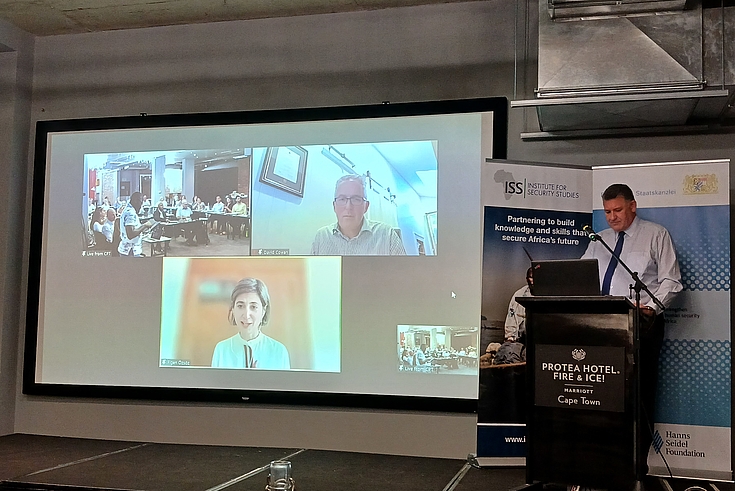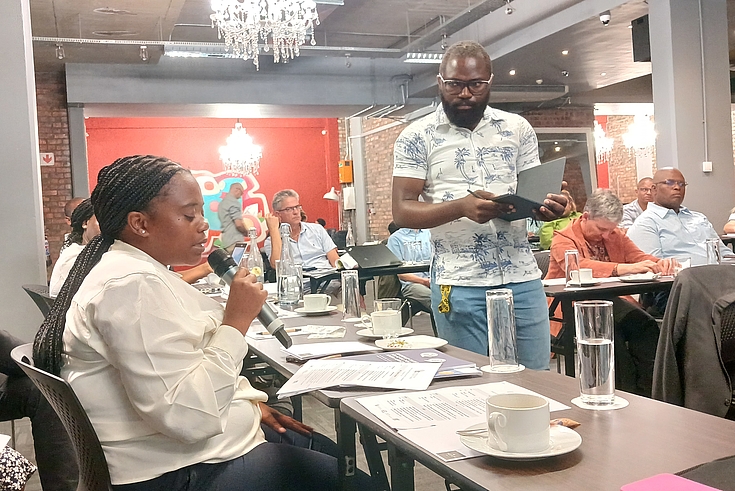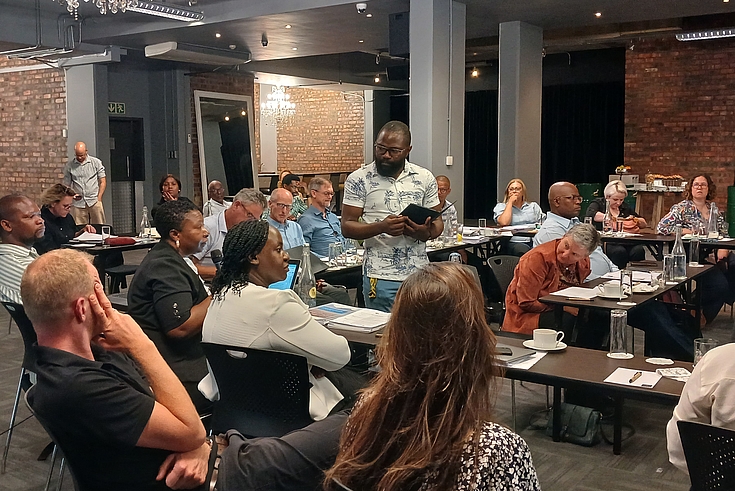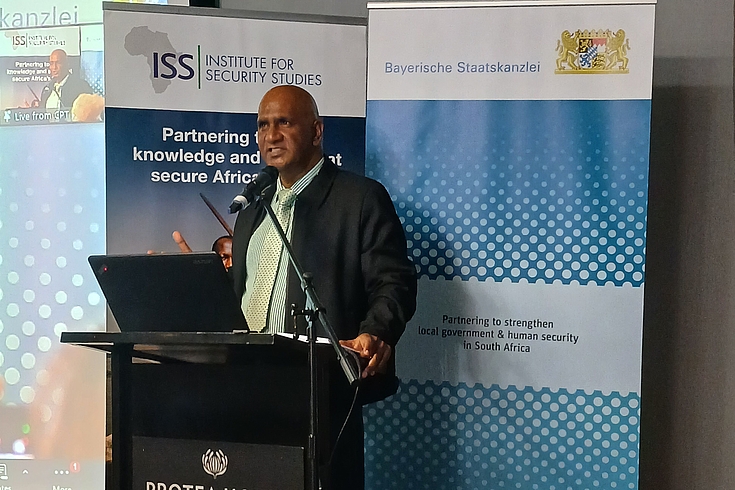Crucial discussions in Cape Town
Evidence-Based Policing South Africa Conference

Insightful presentations were actively discussed at the hybrid conference
HSF
Working with the Institute for Security Studies
The two-day conference at the beginning of December was organised by our partner organization, the Institute for Security Studies (ISS), which works with police in South Africa to tackle crime more effectively through EBP and helped to establish Africa’s first EBP network in 2020.
The panels featured 22 speakers from South Africa, Germany, Australia and the United Kingdom and covered topics such as research and partnerships; information, analysis and policing; violence, data and policing; crime mapping and technology; hotspot policing and performance management in South Africa.

Diverse representatives from different sectors and countries participated actively in the conference
HSF
Data and crime analysis are at the core of EBP
“Cause and prevention of crime is complex and multi-layered. Successful police strategies should be based on data and research – led by police and ideally carried out by “pracademics” from within the organisation”, the panel on the role of research in policing agreed.
EBP is not a policing model but rather a methodology for optimising a policing approach based on better use of research and data which complements the traditional police decision making. It can help law enforcement agencies anywhere in the world identify which strategy best fits a particular situation and help implement and improve that strategy. At the same time professional experience and personal judgement remain an important part of day-to-day police work.

Serious conversations about topics crucial for South Africa
HSF
A promising methodology
Although the methodology is increasingly understood and promoted by South Africa’s senior police and other government partners, conducting research within the police is not without its challenges. Brigadier Schwartz from the Research Division of the South African Police Service (SAPS) suggested that the organisational culture of the SAPS plays a huge roll in the misunderstanding of the research process which is often perceived as a management intervention to improve performance at station level. Another misconception is that EBP requires additional resources – exactly the opposite is the case. EBP helps to allocate scarce resources where they matter most and thus saves time and money.

EBP should be facilitated a promising methodology
HSF
Leadership matters
To promote EBP within the police a growing organisational culture to embrace critical thinking and evidence-based decision making is necessary. Strong leadership, especially in the middle management, is crucial for this. This could be further promoted by integrating EBP into the performance management. Performance management should foster the professionalisation of policing and building trust – both of which EBP contributes to.
Subscribe to our Newsletter to receive event invitations and new publications via email - and follow us on Facebook and Twitter for news about our work.
